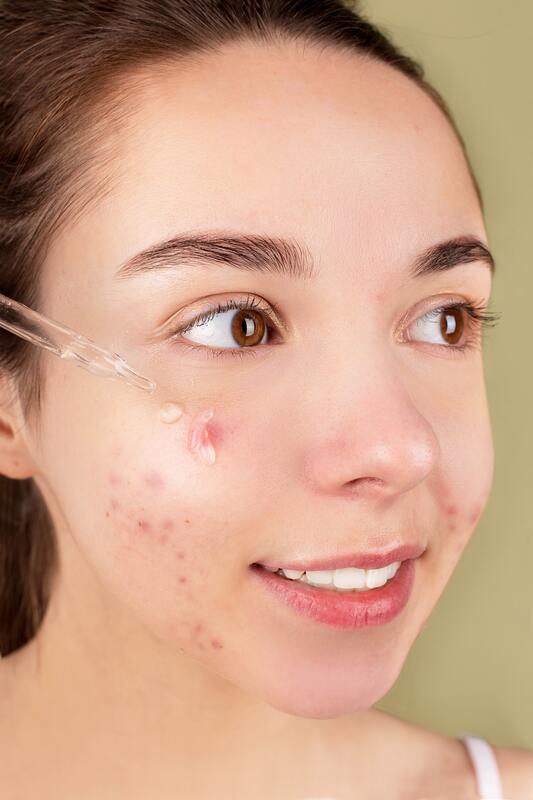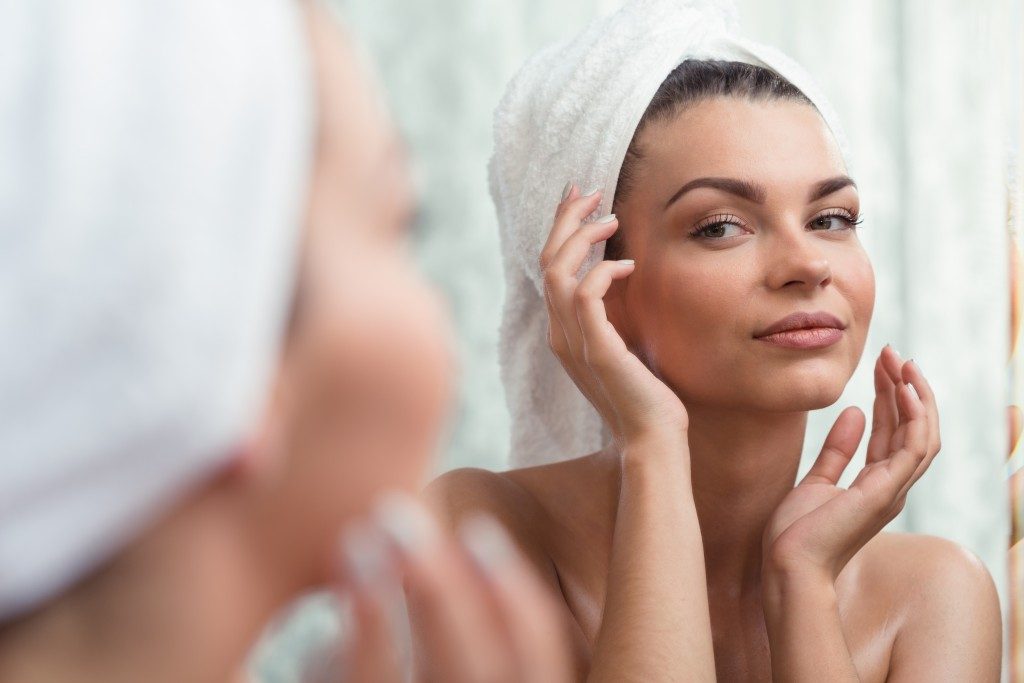It seems like a silly worry, but acne is a big concern for a lot of people. And while most cases of acne clear up within a few years or less, the condition can last longer and become very distressing to deal with.
Acne is not life-threatening, but it is not an easy thing to deal with when you have it—especially since many products out there promise to “cure” your acne in just a few days with glowing results.

Now, if you’re looking for an easy answer, well, there isn’t one. But what is important to keep in mind is that there are always ways to take care of your skin when you have acne—and it doesn’t involve spending tons of money on expensive skincare products you don’t need.
Read on for tips and tricks from dermatologists, teenagers who’ve been through it, and other people out there just like you who know all too well how hard it can be to deal with acne:
1. Watch Your Diet
Contrary to what most people say, diet doesn’t cause acne. But it can worsen it, so you still need to watch what you eat and your overall eating lifestyle.
For example, skipping meals can make your skin much worse, especially if it’s in the form of sugary or processed snacks that cause your blood sugar to spike suddenly and then drop. Skipping meals over time will only stress out your body more, so try to eat small but frequent meals throughout the day.
Also, cut back on processed food. These foods are full of salt, which can irritate your skin. It’s not just processed food either—fast food is also full of unnecessary additives and preservatives.
Stick to healthier alternatives whenever possible so that your body can repair itself without getting bogged down by processed ingredients that might trigger breakouts.
2. Choose Your Skincare Products Well
You don’t need to spend hundreds of dollars on fancy skincare products. Most drugstore brands are just as effective—if not more so—than expensive department store alternatives, so take the time to research various products and choose ones that fit your skin type.
It’s also important to know that it takes at least three weeks for any skincare product you use on your face to produce visible results, even if you do see some changes during the first few days.
Having acne also doesn’t mean you can’t wear makeup. However, pick acne-safe makeup, which is usually non-comedogenic or free from alcohol and fragrance.
3. Wash Your Face
The worst thing you can do for your skin when you have acne is to skip washing it every evening before bed. Washing your skin well removes excess dirt and oil, which can make all the difference in terms of keeping your skin healthy and glowy-looking.
But don’t go overboard, however. All too often, people scrub their faces much too hard because they’ve heard somewhere along the way that it’s beneficial to exfoliate their skin to get rid of acne.
Don’t listen to these claims. Scrubbing your skin harshly or too often can make it flare up even more because you’re stripping away its natural protective barrier and making it impossible for your skin to repair itself properly overnight.
If at all possible, wash your face only two times a day with lukewarm water. More than that can be drying to an already sensitive area. Look for cleansers that are gentle but effective so that you can cleanse your skin without irritating it further.
4. Skip Those Bad Habits
Touching your face with dirty hands is one of the worst things you can do for your acne. Always wash your hands before touching your face, and if possible, keep them off completely since this will reduce the risk of spreading bacteria back and forth between other areas on your face. It also helps to keep hair and accessories away from your face since these can transfer oil and dirt from other areas onto your skin.
Sleeping in makeup is a huge no-no as it can block pores and cause acne to develop. Remove all of your makeup before bed.
5. Talk to a Dermatologist
When you have uncontrolled acne, a dermatologist is your best friend. The right dermatologist should be able to help you create a customized skincare routine that will work for you.
A dermatologist can also help provide insight about other possible causes of acne—like stress or changes in hormone levels that might cause breakouts to occur more frequently than normal.
Acne is generally caused by clogged pores, but it’s not always clear why these get blocked up in the first place. A dermatologist may recommend lifestyle changes like exercise and dietary changes or medications to treat excess sebum production.
Having acne is tough to deal with, but it doesn’t have to take over your whole life—no matter how much you might feel like it does.
Exercise caution when choosing the right skincare products for your skin type and follow a skincare routine modeled around your personal needs. Avoid touching or picking at blemishes, don’t wear makeup if you can avoid it, and seek help from a dermatologist if necessary.
These steps will reduce breakouts significantly even if you already have them—and they’re easy enough to follow that you won’t have to worry about doing anything special beyond what’s normal for you anyway.



